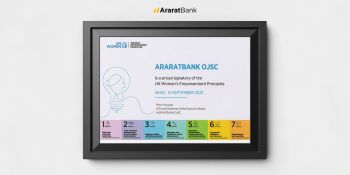5 important steps to consider before starting freelance work
News |

In recent years, freelancing has become one of the fastest growing areas in the modern labor market.
In recent years, freelancing has become one of the fastest-growing sectors in the modern labor market. The rise of the digital economy, the development of technological platforms, and the increasing demand for work flexibility have led millions of professionals to abandon traditional office environments in favor of independent work. However, as experts note, freelancing is not just about changing where you work — it’s a full-fledged business approach that requires clear strategy and preparation.
1. Defining your goals — the first step to success
Freelancing offers independence, but that same independence requires clearly defined goals. You need to determine whether you want to leave your current job entirely and build a stable source of income, or simply earn extra money on the side.
Setting clear goals allows you to design your own business model — understanding who your target clients are, what rates you’ll charge, and what level of income you’re aiming for. Without this clarity, freelancing can quickly turn into a chaotic and unstable process.
2. Assess the market demand for your skills
To make the right decisions, you must first evaluate the demand for your services. Clients pay not for skills, but for solutions to their problems. Therefore, it’s essential to research the market using platforms such as Upwork, LinkedIn, or local freelance communities.
Check whether what you offer matches current market needs. If not, it might be time for retraining or skill upgrading.
3. Choose a field you’re passionate about
Freelancing leads to long-term success only when you love what you do. Psychological motivation is the key factor that distinguishes successful freelancers from the rest. If independent work becomes not just a source of income but also a way of self-expression, your results will be stronger, and your clients more satisfied.
4. Plan your financial safety net
Transitioning to freelance work should be done gradually. Switching to full-time freelancing without a financial cushion can be risky.
Experts recommend saving enough to cover 3–6 months of living expenses so you won’t panic if there’s a shortage of projects. A freelance career develops gradually, and it takes time to achieve stable income.
5. Learn the basics of business management
Freelancing isn’t just about applying your professional skills — it’s about running a business. You are responsible for everything: pricing, contracts, taxes, and client relationships.
Consulting an accountant or a lawyer can greatly simplify your start. This helps you avoid legal and financial mistakes that beginners often make.
Freelancing is an opportunity to work on your own terms, build an independent business, and shape your personal brand. But to succeed, you need strategic thinking, realistic goals, and long-term planning.
If you approach freelancing not as a random experiment but as a conscious business project, your path to financial and professional independence will not only be achievable but also sustainable.
The article is based on the analysis of the Forbes
*The article was also prepared using data from AI․
Follow us in social networks
-

The Big Impact of Small Financial Mistakes: How Minor Errors Threaten an Entire Business
2025/12/07/ 17:56 -

2026 Business Trends: From AI Acceleration to Evolving Customer Behavior
2025/12/06/ 18:06 -

Why Money Has a Psychological Impact on Us: How to Avoid Losing Your Sense of Self
2025/12/05/ 19:00 -

AraratBank Participates in “Women’s Empowerment Principles in Armenia” Conference
2025/12/05/ 18:07 -

How to Free Yourself From Overthinking and Make Confident Choices Every Time
2025/12/04/ 19:00 -

Acba bank and France’s Proparco to continue strengthening their long-term strategic partnership
2025/12/04/ 14:24 -

The power of Armenian nature, the secret of your beauty.
2025/12/04/ 10:44 -

How the People Who Truly Earn Big Money Think Introduction
2025/12/03/ 19:00 -

€500,000 Investment for Circular Economy Development in Armenia
2025/12/03/ 16:21 -

AraratBank Joins Armenia's New Greening Initiative: 100 Hectares of New Forest within Three Years
2025/12/03/ 12:36
 Subscribe
Subscribe







